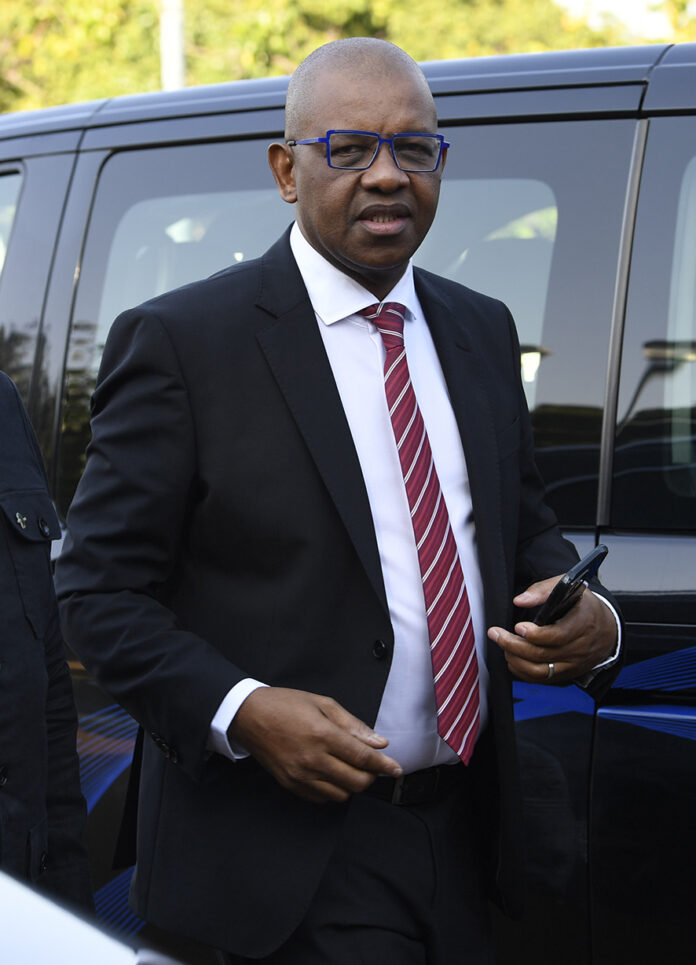Tensions have erupted between two of South Africa’s most powerful legal institutions, shaking the profession as efforts mount to strike legal eagle Advocate Dali Mpofu SC from the roll.
The Legal Practice Council (LPC) has come out swinging, rejecting claims that it is being used to wage a racist political campaign against Mpofu, who happens to be a member of the uMkhonto weSizwe Party.
This follows an explosive letter from the Pan African Bar Association of South Africa (PABASA), accusing the LPC of targeting outspoken black advocates and being used to execute a racist, politically motivated agenda designed to destroy Mpofu’s career.
Weaponised in political battles
Responding in a letter dated April 23, LPC chairperson Advocate Pule Seleka SC said it was “inappropriate” for any professional body to attempt to intervene in a pending disciplinary matter as PABASA did in its explosive letter last week.
The council, said Seleka, is committed to due process. And it will not allow itself to be weaponised in political battles.
“Your letter appears to be predicated on a misunderstanding of the functioning of the LPC’s disciplinary processes in general and the role of the national council in particular,” wrote Seleka.
“We presume that it is not your expectation for us to respond to the NEC’s perceptions that the LPC is being utilised as a tool to target black practitioners and marginalise PABASA. That perception is wholly incorrect.”
Independent committees established by law
Seleka emphasised that disciplinary matters are handled at provincial level. They are handled through independent committees established by law, and not by the national LPC.
“The national council is neither empowered to intervene in the performance of functions of the disciplinary bodies nor to influence the outcome of disciplinary processes,” he said.
The fiery exchange comes after PABASA sent a stinging 20-page letter to the LPC on April 17. In the letter, it accuses LPC of bringing “spurious” charges against Mpofu. The latter is a senior member of the Bar and the association’s secretary general.
PABASA claimed that the charges are part of a larger, sinister campaign to marginalise black advocates with radical views.
Targeted lynching
The association described the disciplinary charges as “a targeted lynching”. It also labelled them “an abuse of the Code of Conduct for nefarious personal and political motives”. The charges include allegations of intimidation, inappropriate courtroom conduct, and bringing the profession into disrepute.
It warned the LPC not to allow itself to be reduced to a “conveyor belt” for those who, in its words, “represent racist bigotry”.
The advocacy group went as far as to blame “white NGOs” and conservative elements within the legal fraternity. It accuses them of orchestrating a campaign to sideline Mpofu and other outspoken African practitioners.
“Cross-examination, by its very nature, includes discrediting witnesses and their testimony,” PABASA argued.
“We find it embarrassing that a legal body like the LPC should fail to understand this basic point.”
LPC not backing down
But Seleka pushed back hard. He stated that the LPC does not — and will not — serve as a platform to “fight political battles and/or skirmishes between professional bodies”.
“You can rest assured that the current national Council is, indeed, committed to the rule of law. It is committed to transparency and ensuring that practitioners observe high standards of professional ethics,” he wrote.
PABASA had demanded that the LPC “rethink its position” and drop what it called “nonsensical” charges against Mpofu. But Seleka stated that such interventions are neither procedurally correct nor legally permissible.
“Decisions of the disciplinary bodies should ultimately serve before the national Council for implementation,” he explained. “Especially when they involve a recommendation to suspend or strike a practitioner off the roll.”
Deep political, racial tensions in SA legal system
The dramatic exchange of letters has exposed deep racial and political tensions within South Africa’s legal system. This is an arena that has long battled with issues of transformation, bias, and the dominance of older, historically white-led structures.
Mpofu is known for his combative courtroom style and high-profile cases. He has frequently drawn both admiration and criticism for his political alignments and aggressive legal tactics.
His current battle with the LPC is more than personal. It has become a battleground for competing visions of justice, professionalism, and transformation in the post-apartheid legal landscape.
With the LPC standing its ground and PABASA refusing to back down, the matter now sets the stage for a fierce showdown. Not only over Mpofu’s career but also over who gets to define professionalism. This in a profession still grappling with the ghosts of its colonial past.



